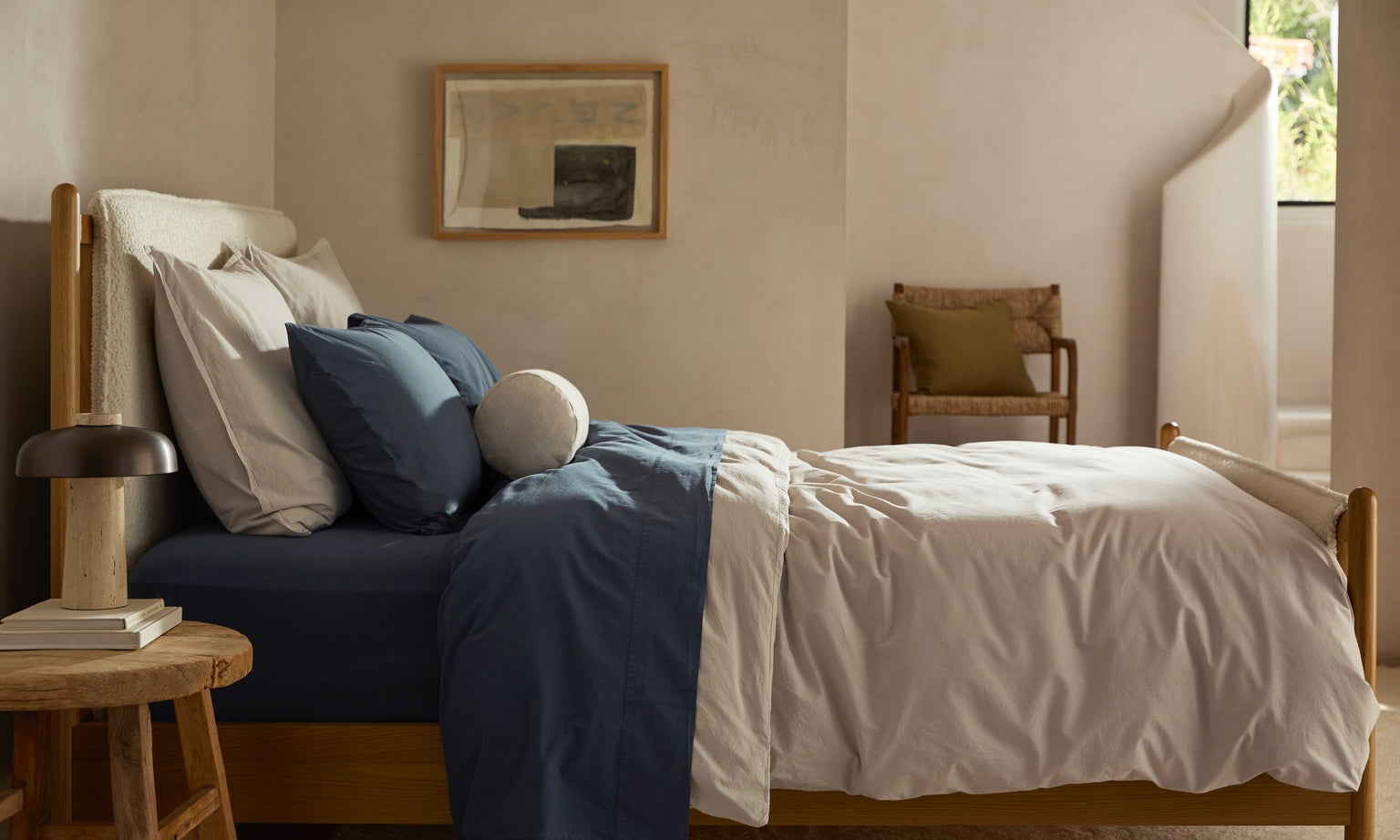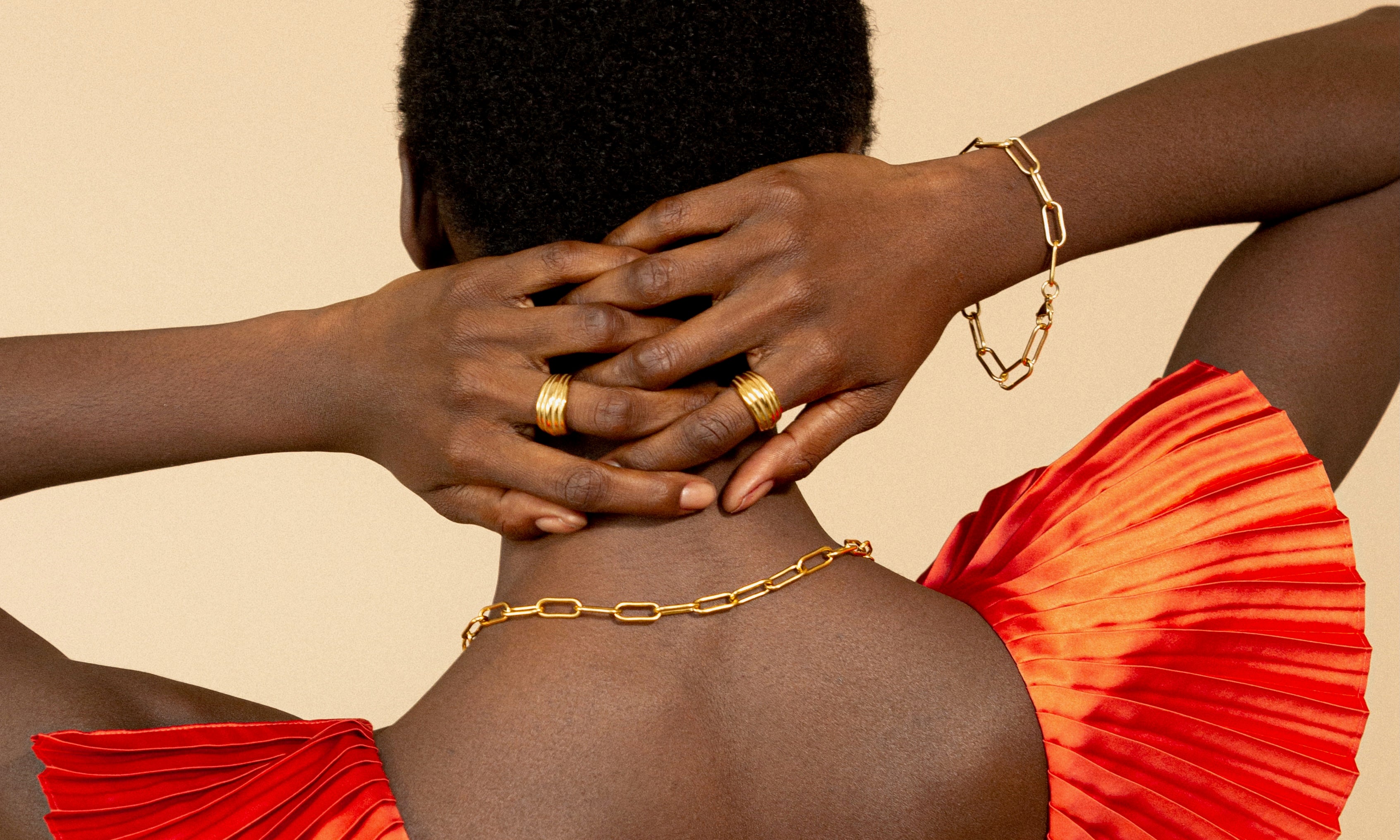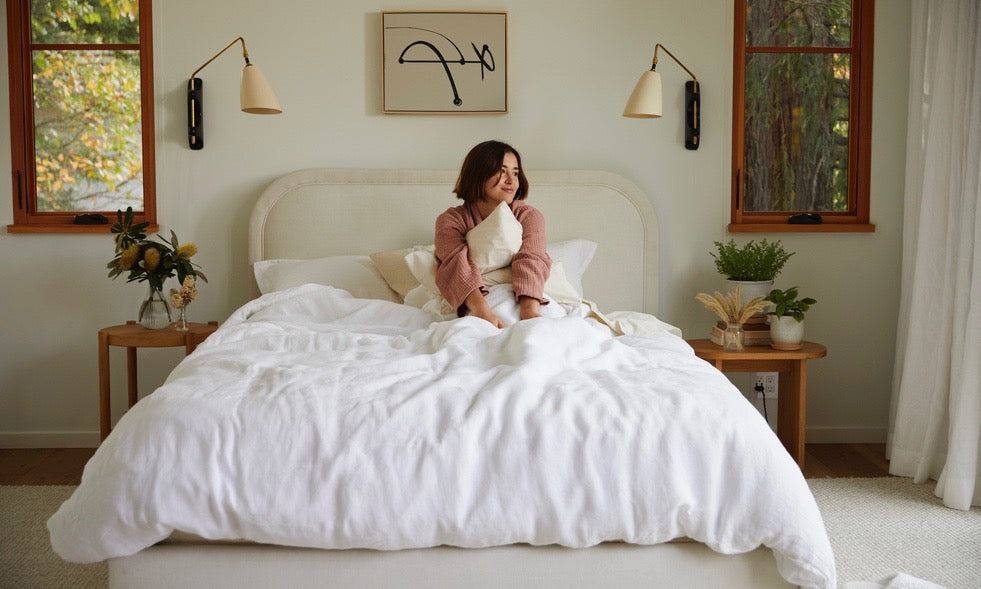
Brushed Cotton: Know Your Bedding Like a Designer
Everything you need to know about this exceptionally cozy fabric.
Most people are familiar with cotton — a naturally sourced fabric spun from the fluffy fibers of cotton plants. It's easy to see why the lightweight, versatile material has been a favorite for clothes, towels, and bedding for centuries. But not all cotton is created equal. There's a particular type of cotton that's ultra-breathable, cozy yet cooling, and incredibly soft to the touch. We're talking about brushed cotton, which is currently having a well-deserved moment in the world of bedding. But what is brushed cotton, exactly, and how is it made? Here's what you should know about this all-star fabric, including why it's a standout option for bedding.
What Is Brushed Cotton?
As its name suggests, brushed cotton is cotton that's finished with a brushing technique. The fabric is luxuriously smooth and cooler than most other types of cotton, yet still plenty warm. It's as soft as a lived-in shirt with the elegance of a premium material. In other words, it's cotton, but better.
Brushed cotton is often used to make casual tees, kids' clothes, stuffed toys, baby blankets, pajamas and nightgowns. The undeniable softness also makes it an ideal choice for sheets, pillowcases and duvet covers.
How Is Brushed Cotton Made?
To make brushed cotton, the raw plant fibers are spun into threads, then woven into a fabric. After that, it's gently rubbed with fine-toothed metal brushes, which raises the fibers and creates a super-soft surface. Excess lint is removed during the brushing process, leaving the material exquisitely smooth. The fluffed fibers give brushed cotton fabric the perfect level of insulation. It's extra-cozy but won't make you overheat.
What to Know About Brushed Cotton Bedding
Your bedding material has a lot to do with your overall comfort and quality of sleep. Some people prefer fabrics that retain heat, while others need something more breathable. Brushed cotton is the best of both worlds and then some.
The material is cozy, but it doesn't trap air. It's ideal for people who run hot or sweat during the night, as the breathable brushed fabric wicks away moisture. On the other hand, it's also warm enough for those who need a little more insulation.
Brushed cotton bedding is soft to the touch, comfy against the skin and never itchy. People with eczema and other skin conditions — as well as babies and children with skin sensitivities — can benefit from the soft, soothing weave. And thanks to its refined yet versatile appearance, the fabric works with a wide range of bedroom styles. It's no wonder the material is becoming such a popular choice for sheets and duvet covers.
It's durable and easy to clean too. Like all cotton, brushed cotton bedding can shrink and pill over time, but this can usually be avoided with proper care. Learn more in the Does Cotton Shrink? Keep Cotton Sheets & Shirts the Proper Size.
How Does Brushed Cotton Compare to Other Bedding Materials?
Of course, it's good to have at least a rough idea of other bedding materials before making your decision. Brushed cotton fabric is similar to flannel in terms of texture and how it's made. Flannel bedding can be made of cotton, wool, or synthetic fibers. The woven fabric is brushed with fine wires to raise the fibers and create a napped effect.
Brushed Cotton vs Flannel: What’s the Difference
So, what's the difference between flannel and brushed cotton? This fabric is technically a type of flannel, but unlike traditional flannel, it's usually only brushed on one side. Parachute's Brushed Cotton is brushed on both sides -- making it extra soft. It’s also not as thick as flannel. This makes it the perfect balance of breathable and warm.
Brushed Cotton vs. Percale, Sateen, and Linen
Then there's percale cotton, which has a crisp, cool feel reminiscent of high-end hotel bedding. Another option is sateen, a silky-smooth cotton fabric with a satin weave and a subtle sheen. Linen is another naturally sourced fabric known for its ability to get softer over time. Made from flax fibers, the material is slightly stronger and heavier than cotton but also breezy and breathable.
Brushed cotton is ideal for people who love the classic look of percale but want something a little softer and cozier. The fabric also appeals to those who like sateen but prefer a slightly lighter material. Not too hot, not too cool, undeniably snuggly and lightweight with a tasteful appearance, brushed cotton bedding checks all the boxes, making it a top choice for year-round use.
Brushed Cotton Bedding from Parachute
The brushed cotton bedding from Parachute is as comfy as your favorite worn-in tee. Crafted at our family-owned factory in Portugal with plain-weave construction, delicately brushed and then garment-washed to relax the fibers, the material is exceptionally cozy and buttery-soft. And the finished fabric looks just as good as it feels.
Take a peek at our selection to see what stands out. We've got brushed cotton sheets, duvet covers, shams and pillowcases — everything you need to build the bed of your dreams. Not sure if this popular material is right for you? Order a fabric swatch to feel the material yourself.
For more insight into the coziest fabrics for your bedroom, read on:
Sateen: Know Your Bedding Like a Designer
Linen: Know Your Bedding Like a Designer
Waffle Weave: Know Your Bedding Like a Designer
Satin vs Sateen vs Silk: What's the Difference?
Best Organic Cotton Bedding: What to Look For







